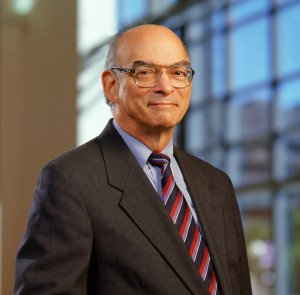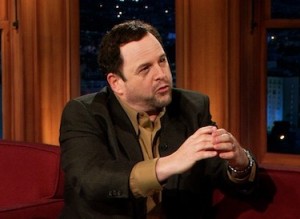
The original video I posted was taken down. Alexander calls cricket a “gay game” 5 minutes in.
In an interview with Craig Ferguson last week, Jason Alexander called the game of Cricket “a gay game.” It was clear (and you can see for yourself in the video above, starting at the 9 minute mark) that Alexander was equating “gay” with “effeminate” and juxtaposing words like “gay” and “queer” with notions of masculinity and being “manly.” After the show aired, the tweets started pouring in. This tweet by @spaffrath was pretty trypical:
@IJasonAlexander haven't you grown past calling things you don't like "gay". Really offensive.
— Stephen Paffrath (@spaffrath) May 31, 2012
At first Alexander defended his comments, saying the usual things embattled comics say:
@spaffrath ur ability to b offended far exceeds ur sense of humor.
— jason alexander (@IJasonAlexander) May 31, 2012
@spaffrath steve, i've learned u must discern the intent of the joke – if it is meant to hurt, anything can. if it is meant to amuse.., u
— jason alexander (@IJasonAlexander) May 31, 2012
It could have very easily ended at that- just another public figure saying heteronormative things that alienate a sizable minority of the world’s population. But a few days later, he tweeted a link to a very personal and honest apology:
A message of amends. Last week, I made an appearance on the Craig Ferguson show – a wonderfully unstructured, (cont) http://t.co/Ef38YUjF
— jason alexander (@IJasonAlexander) June 3, 2012
I feel as though public apologies have become more prevalent in our networked society. When I Googled the titular question, two things became abundantly clear. First, lots of people seem to agree that public apologies are more frequent than ever. Second, the public apology has become reified. In other words, we know a public apology when we see it. It’s an identifiable thing that has definite attributes that can be discussed and critiqued.
What seems debatable, however, is whether or not all these apologies are necessary. David Mitchell, a columnist at The Guardian is sick and tired of all the demands for public apologies made by politicians and other public figures. He writes:
Those who wish to silence others have noticed that expressions of offence and demands that people say sorry are the best way of doing it. Once you’ve demanded an apology, you can logically continue to demand it until you receive it.
Mitchell is not annoyed that there are more public apologies per se, rather he is tired of the “taking umbrage” political trope that has created a “thriving apology extortion racket in public life.” He uses Newt Gingrich as his main example: He takes non-issues, according to Mitchell, and feigns offense until his target caves to the ensuing media attention and gives a half-hearted “I’m sorry if I offended anyone” press conference. Gingrich secured a solid portion of a news cycle when he demanded that Robert De Niro apologize for jokingly asking, “Is America ready for a white first lady?” The popularity (and effectiveness) of this tactic is worth noting, but it isn’t exactly what I’m looking for. I’m much more interested in popular demands for a single person to apologize for their actions.
The Christian Science Monitor has the most recent reporting on public apologies, concluding that we are apologizing more than ever, but the apologies are getting worse. The reason?
“We are in a pandemic of bad behavior,” says Dr. Aaron Lazare, chancellor and dean emeritus of the University of Massachusetts Medical School in Worcester and author of the 2004 book “On Apology.”
He has studied the frequency of apologies in published news reports from 1900 to the present day and says since the 1980s, “the number of apologies has tripled.” But, he adds, the effectiveness and sincerity of those apologies has plummeted.
“Most of these people simply want to have their cake and eat it too,” he says, noting that the key to a genuine apology is humility and restoration of dignity for the offended party.
Moreover, the internet (Bum Bum Bum!) is helping spur these apologies:
The 24/7 media culture is partly responsible for the explosion of apologies, says Ari Kohen, an associate professor of political science at the University of Nebraska in Lincoln.
A hyper-connected online culture means more and more opportunities to say or do something offensive, he notes. This also means that “more and more people are watching, listening, and most importantly ‘sharing’ the offensive thing that someone has said or done,” he says via e-mail, adding, “so we’re seeing the offensive statement or action more than perhaps we would have, which yields more calls for apology, which in turn yields more and more terrible apologies.”

I have not read “On Apology” and I could not find any published academic articles by Dr. Kohen that deal with public apologies or public affairs mediated through information technology. I have read some of Lazare’s essays and guest posts where he discusses aspects of his book, and I generally agree with his assessment of what makes for an effective public apology and the psychology of feeling that you are owed an apology. (His explicit recognition of apologies as a reconciliation of debt goes much deeper than he might think, as seen in Graeber’s most recent work “Debt: The First 5,000 Years.”) But when he starts talking about the “global village” we all share, the analysis becomes vague: More interaction means more apologies will be necessary, and each apology will become increasingly more important as our lives becoming increasingly intertwined. Is that necessary true? I could see more war, more attentiveness to not offending people in the first place, and more apologizing. But the mix of these three possibilities (and countless others) is unpredictable. Do apologies go up in absolute numbers? As a percentage of interactions? It might be both, and a deeper conversation about debt (something I’m not prepared to do here) might hold the answers. But at this point, I am more convinced that the public apology has been reified, and it is that reification that allows us to easily demand it, and recognize a good one when we see it. Just as diagnoses rates go up as the diagnostic tools get better, public apology rates go up as we get better at recognizing when one is necessary and what form it should take.
I agree with Kohen when he says that the internet (and specifically social networking) makes it much easier to share an offensive statement made by a public official. The statement may be made in an “old media” venue, but it gains new life on YouTube and circulated on Facebook timelines and Twitter. A few examples include Tracy Morgan’s homophobic rant, Rush Limbaugh’s “slut” comments about Sandra Fluke, and just about everything Pat Buchanan has ever said on TV. Without the ability to upload, share and publicly comment on pieces of “old media” it would be much more difficult to drum up popular outrage and gather support for a public apology.
Self-styled experts of public and professional apology characterize YouTube as an instigator and magnifier of misunderstandings and arguments. Its ability to keep powerful people accountable is acknowledged, but more as a warning to the powerful than an optimistic observation for the masses. A perfect example is John Kador’s “Effective Apology: Mending Fences, Building Bridges, and Restoring Trust”. In the chapter “The Age of Apology” he writes:
…digital technology is contributing to the increase of apologies. Technologies such as camera cell phones and the video sharing service YouTube have invaded formerly private spaces, resulting in tectonic shifts in communications, accountability, and privilege. Apologies that once could be transacted discreetly between parties in private (and later denied, if necessary) are increasingly broadcast for all to scrutinize. Technology dramatizes offenses for all to see, so starkly that even the most recalcitrant must express their remorse. (P.23)

What Kador, Kohen, and Lazare all seem to be neglecting, is the very idea that there is this one recognizable thing called “The Apology.” That there is an exact event or moment at which an individual performs a speech act and others evaluate its effectiveness. Every one of these authors talk about the “anatomy of an apology” or “the dimensions of an effective apology” all reinforcing and reifying the very idea of the generic apology. The very idea that there are dimensions to an effective apology, or that an apology has an anatomy, says something very profound about our augmented society. Once public apologies become identifiable by a certain set of characteristics, they become comparable and collectable. We can curate them and put them side-by-side. Kador actually comes out and says that the apology has become a commodity, but does not notice that the very existence of his book makes that a possibility:
Much of our culture is still organized to reinforce transactional behavior. This part of the culture still regards people and relationships as a means to an end, as assets to be used to bring something about, rather than as ends in themselves.
It’s no accident that apology has evolved to be another instrument to be bargained or transacted. And in rare cases, it is appropriate to use apology in the same way we use currency or any other medium of value. But if the only wat we can have a relationship with apology is by trading it like a commodity, we will miss out on an opportunity to increase our intimacy, transparency, flexibility, and security. (P.239)
We tend to recognize insincere aspects of our society once they take a digital form. The superficial changes get mistaken for a new institution, when what we are really doing is confronting long standing aspects of our society that we find undesirable. As we identify, collect, curate, and evaluate public apologies, we start to effect how public apologies are crafted and the etiquete surrounding them. I think talking about why Jason Alexander’s public apology was so effective –acknowledging the problematic nature of his language, understanding why someone would be offended by it– helps us all practice talking to one-another. Dissecting and evaluating the apologies of others can act as teaching tools for more private interactions. While the public apology is, by definition, meant for many different people the best ones are also intensely personal. They say something about our shared human foibles and our struggles to understand others that hold different values or traditions. We run the risk of over-doing it: pulling a Newt Gingrich and demanding apologies for our own benefit. This might also encourage more insincere, boiler plate apologies that affirm Kador’s fears but I think the benefits outweigh the risks. We now have a recognizable, singular event called the Public Apology and we should start putting it to good use.
